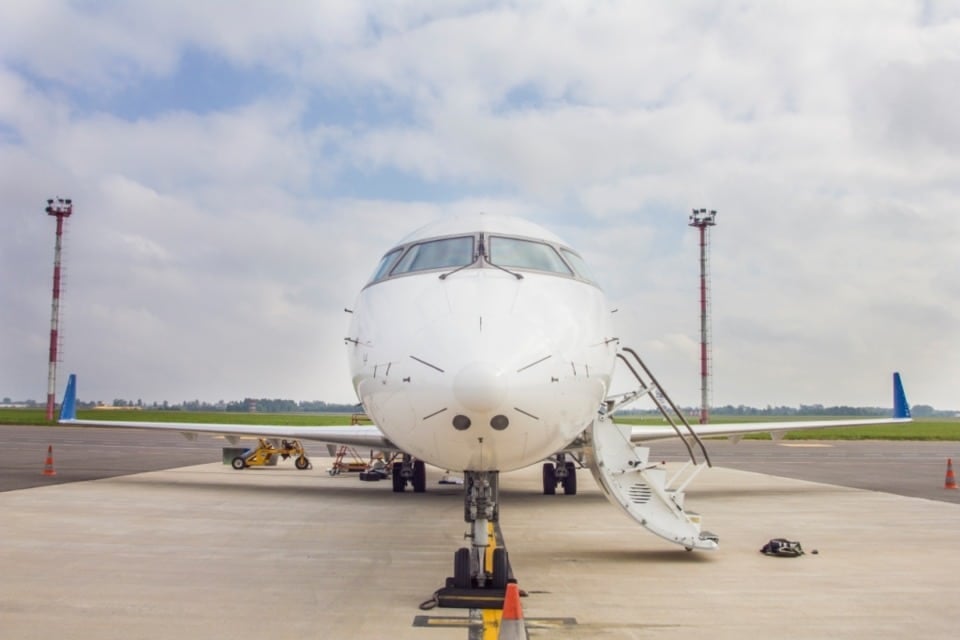Software for aviation is vital for efficient asset management in the aviation sector. The industry uses essential resources, including inventories, replacement parts, and unit load devices. The largest assets of airport activity are the planes themselves. In addition, there are hundreds of operating assets that require asset tracking.
Millions of people travel daily via airports, which have a controlled atmosphere. They are landmarks that guide travelers to their final destinations. Airports also facilitate the delivery of commercial cargo and personal luggage. But how would airport staff know if the package will arrive on time? They certainly can, thanks to real-time asset tracking. One of the most crucial elements of airport activities is maintenance. Nobody has to memorize things by hand to do tasks. With regard to each specific asset and piece of equipment, the program sets off alerts and tells the maintenance crew. Your work might be easier if you use Enterprise Resource Planning (ERP) Software. As a result, learning about ERP pricing scheme calculations will help your business.
Why Does the Aviation Industry Use Asset Management?

Asset management is not easy, particularly when many assets come in and depart. It might be quite a mess. Many pieces of equipment and vehicles, including airplanes, need maintenance in facilities like the airport. To preserve assets, aviation asset management is necessary. Asset management has many advantages for the airport building.
By relying on the aviation asset management program, airports may improve the performance of their assets while saving users’ time. Despite the fact that many airports have been employing a spreadsheet, this approach is ineffective. However, there is a ton of room for advancement with regard to aviation asset management software. A thorough and integrated asset management system is therefore necessary for all types of enterprises to manage assets efficiently, especially if you have a lot of assets that you need to sell to consumers or clients.
Also read: 4 Reasons Why Asset Tracking Management System is Essential
How Software Aviation Works?

The asset tracking software for aviation completes the task flawlessly by storing all data and information on every piece of equipment in the system and making them accessible when needed. Additionally, it aids in scheduling maintenance tasks and sends out staff alerts. It also helps the company expand by pointing out ineffective assets. However, poor maintenance can also result in decreased effectiveness.
As a result, maintenance must be carried out frequently. The program aids in keeping track of all the assets’ maintenance. Additionally, with the use of asset tracking management software, you may quickly view maintenance logs. By identifying the assets’ maintenance requirements and preventing unforeseen failures, downtime costs can be reduced.
Also read: What is an Asset Management System? Its Benefits & Features
The Benefits of Asset Software for the Aviation Industry

By lowering ownership costs throughout the life cycle (performance management) and making the most use of available budgets, our tried-and-true method for developing asset management competency leads to cost savings and higher productivity. The use of data-driven management to forecast and prevent instead of discovering and fixing has also improved dependability and safety. These improvements will also be aided by more assurance in the planning and decision-making processes, as well as defined ownership, accountability, and responsibility that will facilitate better recovery in the event of a disruption. Finally, customer service increases by boosting on-time performance and travel experience predictability. Airports must use their resources and facilities as economically and efficiently as possible in the highly competitive market of today.
Conclusion
By lowering ownership costs throughout the life cycle (performance management) and making the most use of available budgets, our tried-and-true method for developing asset management competency leads to cost savings and higher productivity.
Data-driven management helps aviation businesses forecast issues early, improve safety, and strengthen decision-making accuracy. Clear ownership and accountability supported by enterprise systems for aviation operations enable better recovery planning during disruptions. This approach also enhances on-time performance and overall travel experience predictability.
Finally, customer service increases by boosting on-time performance and travel experience predictability. Airports must use their resources and facilities as economically and efficiently as possible in the highly competitive market of today.
Asset management systems enable businesses to effectively manage their assets and produce reliable data. Get in touch with HashMicro to schedule a free demonstration and meeting with our business professionals about the needs of your firm. Here is a link to the price calculation.
Warning: Undefined array key "med" in /home/hashmicr/public_html/blog/wp-content/plugins/insert-headers-and-footers/includes/class-wpcode-snippet-execute.php(419) : eval()'d code on line 281


































